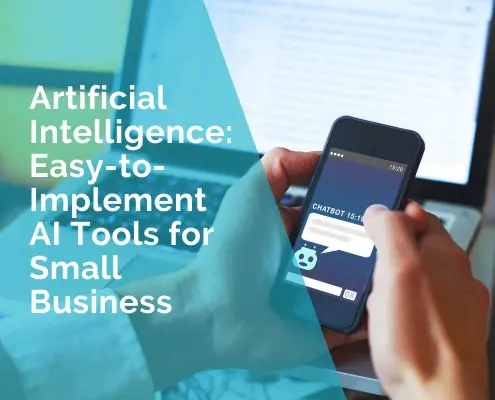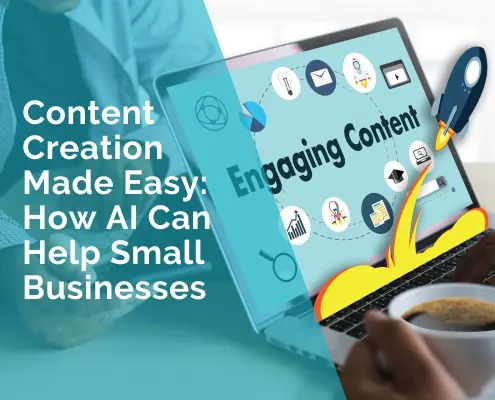Building Intelligent Systems: The Role of AI Developers in Modern Technology
Artificial Intelligence (AI) has become a force, in today’s landscape transforming various industries like healthcare and finance. AI developers play a role in shaping systems that are changing our world. This article explores the role of AI developers in crafting systems highlighting their contributions, hurdles they face and the impact they have across different sectors.
The Masterminds Behind Intelligent Systems
AI developers are responsible for designing, developing and implementing systems. They possess a mix of skills in computer science, mathematics and specialized knowledge that allows them to create algorithms and models capable of learning, reasoning and adapting.
Crafting Intricate Algorithms. A primary task of the AI development team is crafting algorithms that can handle and analyze volumes of data. These algorithms serve as the foundation of systems by enabling machines to identify patterns, make predictions and perform tasks typically requiring intelligence.
For example, in the field of healthcare AI developers create algorithms to analyze images for detecting diseases like cancer. By training these algorithms on datasets of images developers build systems capable of accurately spotting abnormalities. This assists doctors in diagnosis and treatment planning.
Developing and Training Models
In the realm of AI developers are tasked with creating and refining machine learning models, which serve as an element in AI systems. This process entails selecting the model type, training it using data and tweaking it to achieve optimal results. Training these models demands power and expertise in managing extensive datasets.
For instance within the domain artificial intelligence developers craft models for detecting activities. By training these models on transaction records they empower institutions to swiftly flag suspicious transactions in real time thereby reducing fraud risks and bolstering security measures.
Addressing Hurdles in AI Progression
Embarking on the path to developing systems comes with its share of obstacles. AI developers must navigate intricacies, ethical dilemmas and evolving industry norms to provide solutions.
Ensuring Data Quality and Quantity
The cornerstone of AI model training lies in high quality data. Procuring and organizing datasets can pose a challenge. It falls upon AI developers to guarantee that the training data is precise, representative and devoid of biases.
Take for example a technology company creating a language translation application. They encountered difficulties in assembling top notch language datasets. To overcome this hurdle AI developers collaborated with linguists. Tapped into datasets to train their models effectively for accurate and culturally sensitive translations.
Discussing Ethical Concerns and Bias in AI Software Development
The implications and potential biases are considerations in the field of AI advancement. It is crucial to address the risk of AI systems unknowingly perpetuating biases found in their training data, which could result in discriminatory results. Developers have a responsibility to identify and rectify these biases to ensure fairness and impartiality within their systems.
For instance when it comes to the hiring process developers creating algorithms for resume screening must carefully. Correct any biases in the training data to avoid discrimination against specific groups. This involves implementing fairness measures and consistently monitoring the systems performance to detect and address any biases that may arise.
Impacting Across Sectors
The work of AI developers is making strides across a range of industries leading to improvements in efficiency, precision and innovation.
Healthcare Sector
In healthcare AI specialists are developing technologies that support diagnosis, treatment planning and patient care. From analytics that anticipate disease outbreaks to tailored treatments based on individual genetic information AI is reshaping how healthcare services are provided.
For example a team of developers has designed an AI powered platform utilizing machine learning techniques to predict readmissions. This enables hospitals to take measures aimed at preventing readmissions and enhancing patient outcomes.
Financial Industry
AI experts within the realm are bolstering efforts in fraud detection risk assessment and customer service. Intelligent systems analyze transaction patterns, for irregularities evaluate credit risks accurately and offer personalized guidance tailored to needs.
A prominent bank has integrated an AI powered chatbot created by developers to manage customer inquiries effectively. This chatbot utilizes natural language processing to comprehend and address customer queries thereby enhancing service efficiency and customer satisfaction.
Manufacturing
In the realm of manufacturing AI developers are enhancing production processes, predictive maintenance and quality control. AI systems analyze sensor data, from machinery to anticipate failures and schedule maintenance tasks ultimately reducing downtime and costs.
For instance an AI driven quality control system in a plant, crafted by experts in the field employs computer vision to inspect parts for imperfections. This system has notably decreased the occurrence of products leading to improved quality and efficiency.
The Future of AI Development
As technology progresses the role of AI developers will undergo transformations. Emerging domains like quantum computing, neuromorphic engineering and advanced robotics will pave the way for innovation while necessitating that AI developers acquire expertise and competencies.
To remain current with advancements and industry trends AI developers must engage in learning. This entails pursuing education opportunities participating in workshops and engaging with networks.
AI developers at a tech corporation regularly participate in AI conferences. Enroll in online courses to stay informed about the latest developments in artificial intelligence and machine learning.
Working together. Combining areas of expertise is crucial in developing advanced technological systems. When it comes to creating systems, collaboration among fields like computer science, engineering, psychology and ethics is essential. AI developers need to collaborate with experts from these disciplines to ensure that their AI solutions are comprehensive and impactful.
For instance a team working on an AI powered health application consisted of AI developers, psychologists and ethicists. This interdisciplinary teamwork guaranteed that the app not functioned well technically but adhered to ethical standards and proved effective in clinical settings.
Conclusion
AI developers play a role in shaping the landscape of systems that are revolutionizing industries and improving our daily experiences. Their responsibilities include crafting algorithms ensuring data accuracy, addressing dilemmas and continuously adapting to new obstacles. As technology progresses further the significance of AI developers will heighten in influencing the trajectory of innovation and driving advancements across sectors. By acknowledging and tackling both the contributions and obstacles in AI development businesses can leverage the potential of AI, for strategic advancement and prosperity.
***
Catherine Burkovich










